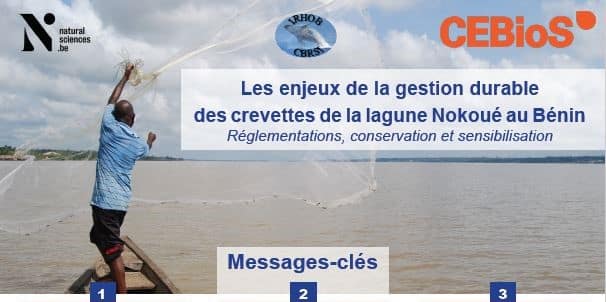News
Policy Brief on the challenges of sustainable management of shrimp from the Nokoué lagoon in Benin (FR)

This Policy-Brief has been developed in close collaboration with IRHOB and ECOMOD.
- Policy-Brief
- 03.02.2025
- Visit this link for more details
More info about the News item
Fishing in the Nokoué lagoon is an important livelihood for many people. Unfortunately, human activities from the many lakeside villages and unsustainable fishing practices are threatening shrimp stocks. Stock management needs to be harmonised and consistent at all levels.
Shrimp plays a key role in the food chain and used to play an important role in Benin’s economy. Shrimp exports have plummeted as a result of low production in Benin’s ecosystems, particularly in the Nokoué lagoon, which alone supplied ¾ of the shrimp exported.
There are many reasons for this situation: on the one hand, strong pressure from local fishermen on the Nokoué lagoon throughout the year, and on the other, the population explosion.
Beninese and international scientists are calling for a halt to fishing in the lagoon from November to February, and a year-round halt to fishing in the channel linking the lagoon to the sea, to enable juvenile shrimp to access the lagoon via the channel, feed, grow and return to the sea to reproduce. This strategy aims to ensure that many Penaeus, the most abundant species and locally known as Dégon, reproduce at least once before they are caught, while promoting the hatching and survival of freshwater shrimp larvae in the lagoon.
The solutions found inevitably involve several stakeholders: political decision-makers, local authorities, fishing communities, local communities, communes and farmers along the Ouémé river.
Safeguarding the shrimp depends on these stakeholders being well informed and working together effectively.
Find effective policy-recommendations in the PDF file. (only FR version available so far)


